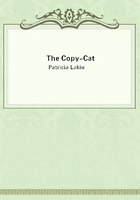
第62章 THE UMBRELLA MAN(7)
"Jane Waters," she replied, readily. Her hus-band's name had been Waters, or the man who had called himself her husband, and her own middle name was Jane. The first was Sara. David remem-bered at once. "She is taking her own middle name and the name of the man she married," he thought.
Then he asked, plucking berries, with his eyes averted:
"Married?"
"No," said the woman, flushing deeply.
David's next question betrayed him. "Husband dead?""I haven't any husband," she replied, like the Samaritan woman.
She had married a man already provided with another wife, although she had not known it. The man was not dead, but she spoke the entire miser-able truth when she replied as she did. David as-sumed that he was dead. He felt a throb of relief, of which he was ashamed, but he could not down it.
He did not know what it was that was so alive and triumphant within him: love, or pity, or the natural instinct of the decent male to shelter and protect.
Whatever it was, it was dominant.
"Do you have to work hard?" he asked.
"Pretty hard, I guess. I expect to."
"And you don't get any pay?"
"That's all right; I don't expect to get any,"said she, and there was bitterness in her voice.
In spite of her stoutness she was not as strong as the man. She was not at all strong, and, moreover, the constant presence of a sense of injury at the hands of life filled her very soul with a subtle poison, to her weakening vitality. She was a child hurt and worried and bewildered, although she was to the average eye a stout, able-bodied, middle-aged wom-an; but David had not the average eye, and he saw her as she really was, not as she seemed. There had always been about her a little weakness and dependency which had appealed to him. Now they seemed fairly to cry out to him like the despairing voices of the children whom he had never had, and he knew he loved her as he had never loved her be-fore, with a love which had budded and flowered and fruited and survived absence and starvation.
He spoke abruptly.
"I've about got my business done in these parts,"said he. "I've got quite a little money, and I've got a little house, not much, but mighty snug, back where I come from. There's a garden. It's in the woods. Not much passing nor going on."The woman was looking at him with incredulous, pitiful eyes like a dog's. "I hate much goin' on,"she whispered.
"Suppose," said David, "you take those berries home and pack up your things. Got much?""All I've got will go in my bag."
"Well, pack up; tell the madam where you live that you're sorry, but you're worn out --""God knows I am," cried the woman, with sudden force, "worn out!""Well, you tell her that, and say you've got an-other chance, and --"
"What do you mean?" cried the woman, and she hung upon his words like a drowning thing.
"Mean? Why, what I mean is this. You pack your bag and come to the parson's back there, that white house.""I know --"
"In the mean time I'll see about getting a license, and --"Suddenly the woman set her pail down and clutched him by both hands. "Say you are not married," she demanded; "say it, swear it!""Yes, I do swear it," said David. "You are the only woman I ever asked to marry me. I can sup-port you. We sha'n't be rolling in riches, but we can be comfortable, and -- I rather guess I can make you happy.""You didn't say what your name was," said the woman.
"David Anderson."
The woman looked at him with a strange ex-pression, the expression of one who loves and re-spects, even reveres, the isolation and secrecy of another soul. She understood, down to the depths of her being she understood. She had lived a hard life, she had her faults, but she was fine enough to comprehend and hold sacred another personality.
She was very pale, but she smiled. Then she turned to go.
"How long will it take you?" asked David.
"About an hour."
"All right. I will meet you in front of the par-son's house in an hour. We will go back by train.
I have money enough."
"I'd just as soon walk." The woman spoke with the utmost humility of love and trust. She had not even asked where the man lived. All her life she had followed him with her soul, and it would go hard if her poor feet could not keep pace with her soul.
"No, it is too far; we will take the train. One goes at half past four."At half past four the couple, made man and wife, were on the train speeding toward the little home in the woods. The woman had frizzled her thin hair pathetically and ridiculously over her temples;on her left hand gleamed a white diamond. She had kept it hidden; she had almost starved rather than part with it. She gazed out of the window at the flying landscape, and her thin lips were curved in a charming smile. The man sat beside her, staring straight ahead as if at happy visions.
They lived together afterward in the little house in the woods, and were happy with a strange crys-tallized happiness at which they would have mocked in their youth, but which they now recognized as the essential of all happiness upon earth. And always the woman knew what she knew about her husband, and the man knew about his wife, and each recog-nized the other as old lover and sweetheart come together at last, but always each kept the knowledge from the other with an infinite tenderness of deli-cacy which was as a perfumed garment veiling the innermost sacredness of love.